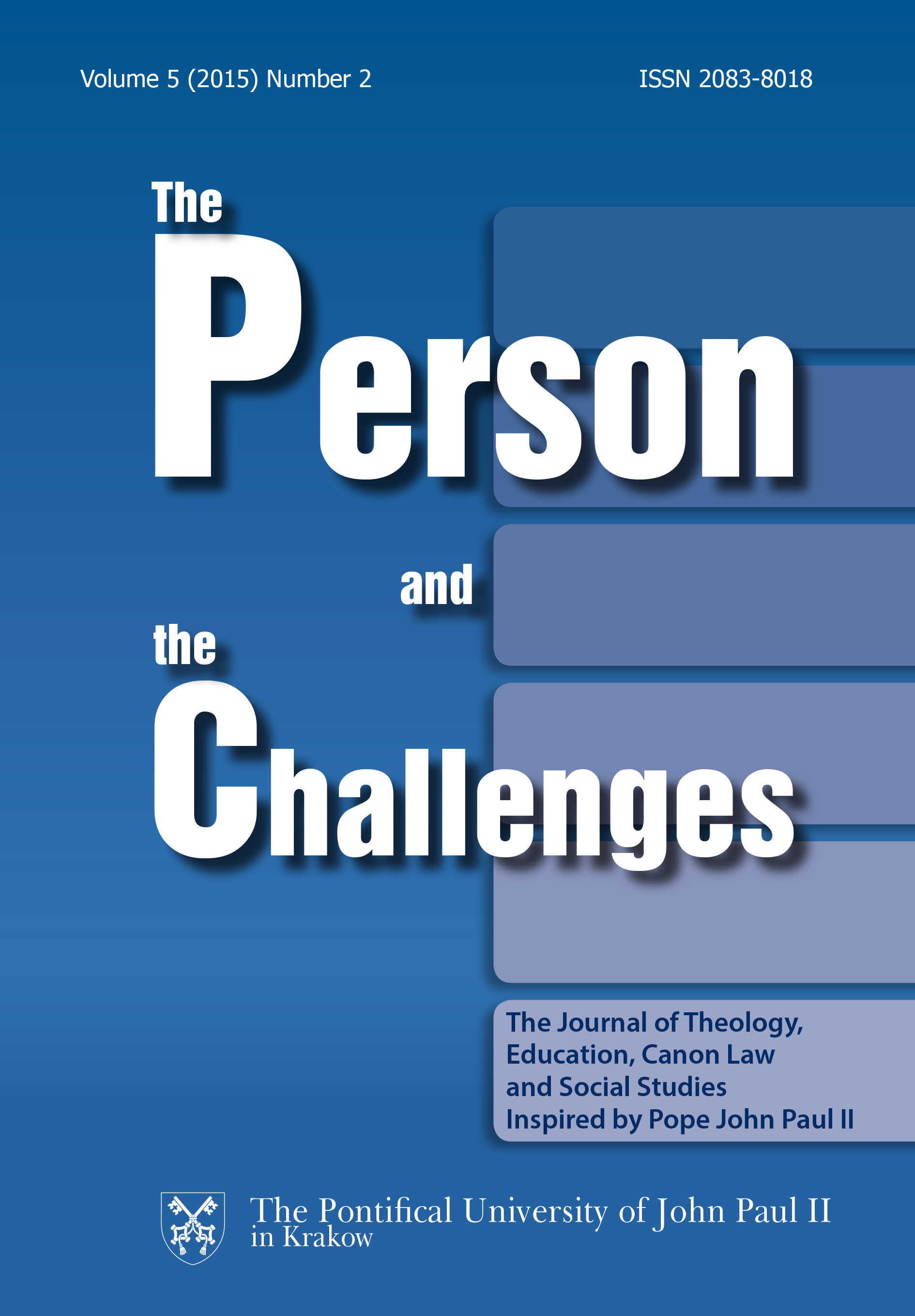The Catholic School in the Context of Growing Migration into Europe
DOI:
https://doi.org/10.15633/pch.1523Słowa kluczowe:
Europe, migration, cultural and religious diversity, pedagogyAbstrakt
In the last years, the intensified migration mostly of people from Africa and Asia altered the situation in Europe. The growing awareness of the importance of respect for human rights and the recognition of the equal value of all people of whatever ethnic origin, cultural or religious tradition, forced the European governments to adjust the institutional services to a new kind of cultural and religious diversity, but Europeans do not want to give up the economic, political, social, ethnic, cultural and religious harmony. Due to the impact of migration, many national curricula are being changed and transformed. But it is also necessary to examine how cultural and religious diversity in Europe is intertwined in school pedagogy. What are the relationships between European and multicultural values and/or between multicultural and Christian values? What is the response of educational institutions to the new political, social, cultural and religious situation in Europe especially based on huge migration influx? What are the possible conflicts between the dynamics of a changing culture on the one hand and the ambitions of the Catholic schools in 21-st century? The author of this text raises a few important questions connected with migration and education in Europe for further reflection.Bibliografia
Ashley M., Secular spirituality and implicit religion: The realisation of human potential, “Implicit religion” 3 (2000) 1, p. 31–49.
Crawford M., Rossiter G., Reasons for living: Education and young people’s search for meaning, identity and spirituality. A Handbook, Melbourne 2006, Australian Council for Educational Research.
Crossman J., Secular spiritual development in education from international and global perspectives, “Oxford Review of Education” 29 (2003) 4, p. 503–520.
Education and Creativity, ed. E. Osewska, Warszawa 2014, Publishing House UKSW.
Francis L. J., Empirical Theology ad Hermeneutical Religious Education: A Case Study concerning Adolescent Attitudes toward Abortion, in: eds. H. Lombaerts & D. Pollefeyt, Hermeneutics and Religious Education, Leuven 2004, Leuven University Press, p. 355–373.
Grace G., Catholic Schools. Mission, Market and Morality, London 2002, RoutledgeFalmer.
Grimmitt M. H., Religious education and human development: The Relationship between studying religions and personal social and moral education, Great Wakering 1987, McCrimmons.
Halman L., Luijkx R., Zundert van M., Atlas of European Values, Tilburg 2005.
Lombaerts H. & Osewska E., Historical and Geo-Political Reality of a United Europe, in: S. Gatt, H. Lombaerts, E. Osewska, A. Scerri, Catholic Education, European and Maltese Perspectives. Church School’s response to future challenges, Floriana 2004, Secretariat for Catholic Education, p. 27–43.
Lombaerts H., Lasallian Education grappling with the European Union, Rome 2007, Brothers of the Christian Schools.
Lombaerts H., The Impact of the Status of Religion in Contemporary Society upon Interreligious Learning, in: Interreligious Learning, ed. D. Pollefeyet, Leuven 2007, Leuven University Press, p. 57–70.
Lombaerts H., The Management and Leadership of Christian Schools, Rome 1998, Brothers of the Christian Schools.
Osewska E., Education and Internet Challenges, in: Education and Creativity, ed. E. Osewska, Warszawa 2014, UKSW, p. 49–66.
Osewska E., To Educate in a Diversified Europe, “The Person and the Challenges” 1 (2011), p. 72–73.
Rossiter G., Decoding the iconography of contemporary lifestyle: Uncovering and evaluating the spirituality in consumerist culture Part 1. Context, approach and relevant literature, in: Education and Creativity, ed. E. Osewska, Warszawa 2014, UKSW, p. 161–183.
Rossiter G., Decoding the iconography of contemporary lifestyle: Uncovering and evaluating the spirituality in consumerist culture Part 2. Contrasting the mise-en-scène of medieval Christian spirituality with that of contemporary consumerist lifestyle: Sociological and educational implications, in: Education and Creativity, ed. E. Osewska, Warszawa 2014, UKSW, p. 185–231.
Rossiter G., Understanding the changing landscape of contemporary spirituality: A useful starting point for reviewing Catholic school religious education, “The Person and the Challenges” 3 (2013) 1, p. 157–179.
Stala J., Den Jungen Menschen auf den Etappen Seines Lebenswegs Begleiten. Wesentliche Elemente der Jugendkatechese Johannes Pauls II., “Angelicum“ 90 (2013), p. 945–960.
Stala J., Der Mensch als Person: Die bestimmende Grundlage für Johannes Paul II. in seinem Bild von der Familie, “The Person and the Challenges” 2 (2012) nr 2, p. 41–59.
Stala J., Die Freiheit – das besondere Kennzeichen einer modernen Jugenderziehung, “The Person and the Challenges” 3 (2013) nr 2, p. 193–207.
Stala J., Die Transzendenz als bestimmendes Merkmal der Person in der Anthropologie und der Pädagogik Johannes Pauls II., “The Person and the Challenges” 2 (2012) nr 1, p. 61–75.
Stala J., RE Books as a Support for Creative Teaching and Learning in a Polish Context, in: Education and Creativity, ed. E. Osewska, Warszawa 2014, UKSW, p. 141–157.
Walt V., ISIS Makes a Fortune from Smuggling Migrants into Europe, http://time.com/3857121/isis-smuggling (20.08.2015).
Pobrania
Opublikowane
Numer
Dział
Licencja
Prawa autorskie (c) 2015 Elżbieta Osewska

Utwór dostępny jest na licencji Creative Commons Uznanie autorstwa 4.0 Międzynarodowe.
Autorzy publikujący w czasopiśmie udzielają jego wydawcy zgody o następującej treści:
- Autor zachowuje autorskie prawa majątkowe do utworu, a jednocześnie udziela wydawcy czasopisma zgody na jego pierwszą publikację w wersji drukowanej i wersji online na licencji Creative Commons Uznanie autorstwa 4.0 Międzynarodowe oraz zgody na wykonywanie opracowań, w tym przekładów.
- Autor ma możliwość udzielania zgody niewyłącznej na opublikowanie utworu w wersji, która ukazała się w czasopiśmie (np. zamieszczenia go w repozytorium instytucjonalnym lub opublikowania w książce), wraz z informacją o jego pierwszej publikacji w czasopiśmie.
- Autor może umieścić swój utwór online (np. w repozytorium instytucjonalnym lub na swojej stronie internetowej) jeszcze przed zgłoszeniem utworu do czasopisma.

